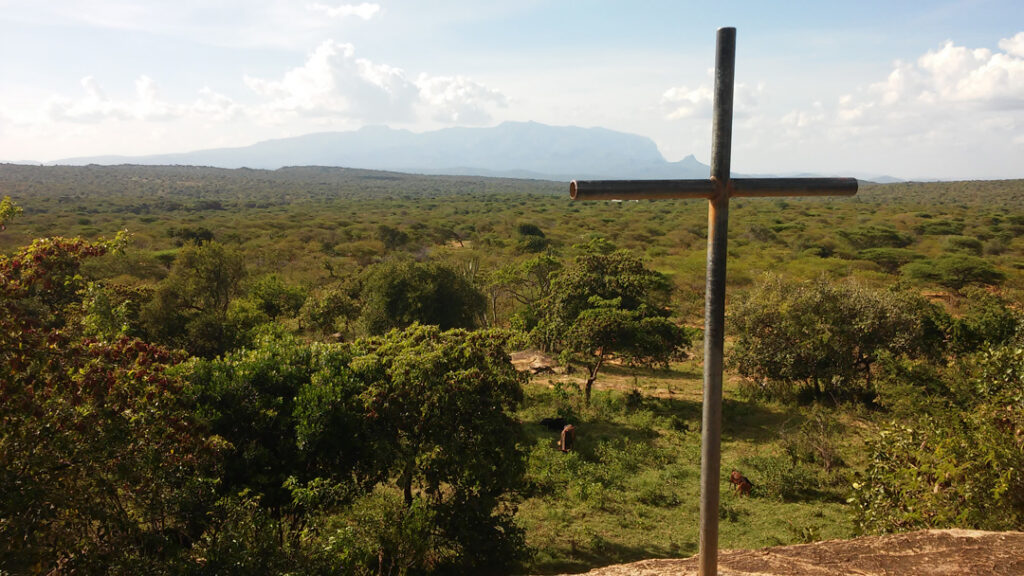
We pray that, as missionaries, we do not rely solely on human and structural resources, but above all on the humanising power of the Gospel. Lord, hear us.
We have concluded the initial training meeting for Comboni Lay Missionaries: It is through prayer that we understand each other.
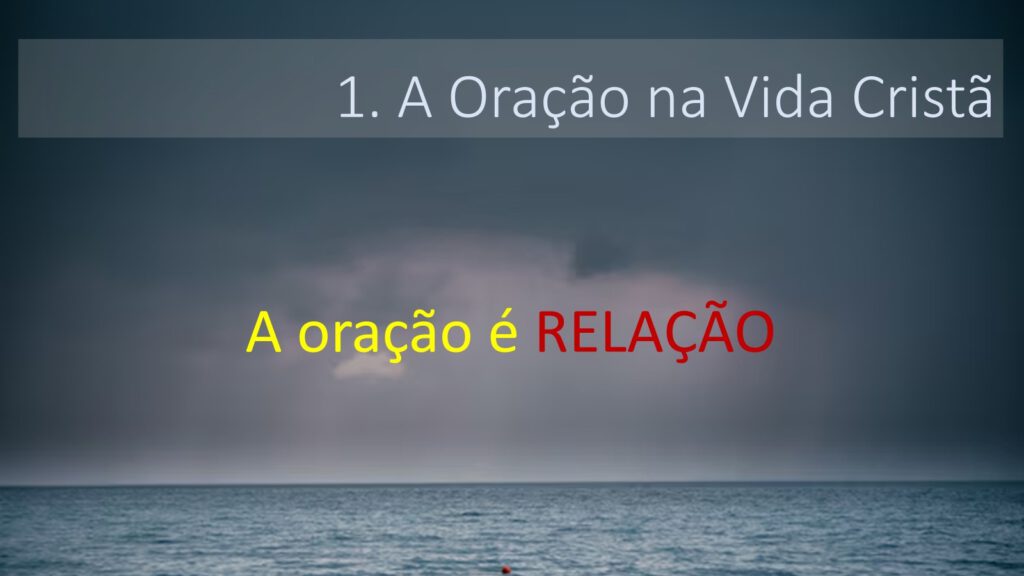
The meeting was held online, and our dear trainees, Isabel and Nair, participated.
This formation turned out to be very rich and beautiful, at least for me (who thought I already knew something about prayer). I hope it was just as or even more beneficial for our trainees who were kind enough to accompany me throughout the weekend.
Because God is always the one who takes the initiative first and humankind has always been searching for God, we began by reflecting on the revelation of prayer throughout the history of salvation, passing through the Old Testament, the time when Jesus walked with us here on earth, and the time of the Church.
The deepening of humankind’s experience of prayer is evident until we reach Jesus, who reveals the full dimension of this gift.
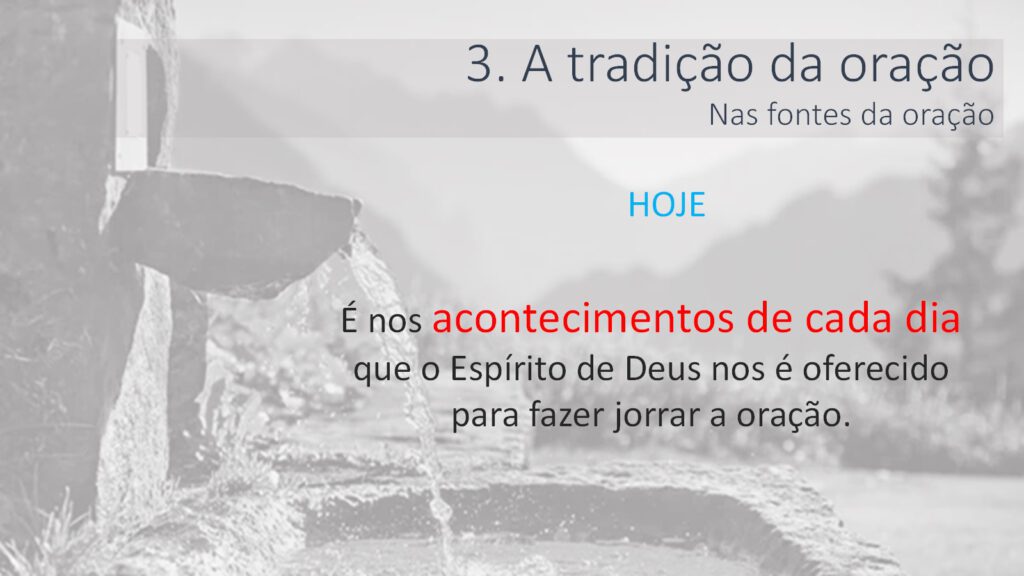
After talking about the sources of prayer, the path, and the guides that lead us through it, we arrive at the life of prayer itself.
Seeking to respond to St. Paul’s challenge to “pray without ceasing” (1 Thessalonians 5:17), we find in the Church specific and concrete community proposals that will allow us to nurture rhythms of continuous prayer.
We reflect on the differences and importance of vocal prayer, meditation, and mental prayer.
In this last degree of prayer, we had contact with the master of prayer, St. Teresa of Avila, and the degrees of prayer she proposes, making a comparison with four ways of watering a garden.
In this analysis, it is clear that God is not at all a passive subject in this relationship. In fact, the highest levels of prayer depend solely on his will and, in addition to requiring great humility on the part of the person praying, they instill even more humility in them as they realize their unworthiness of the greatness of the graces received.
One thing that strikes us when we devote a little time to these themes is the consistency of the concepts from the time of the Old Testament, through the time of Jesus here on earth, to the current proposals of the Church.
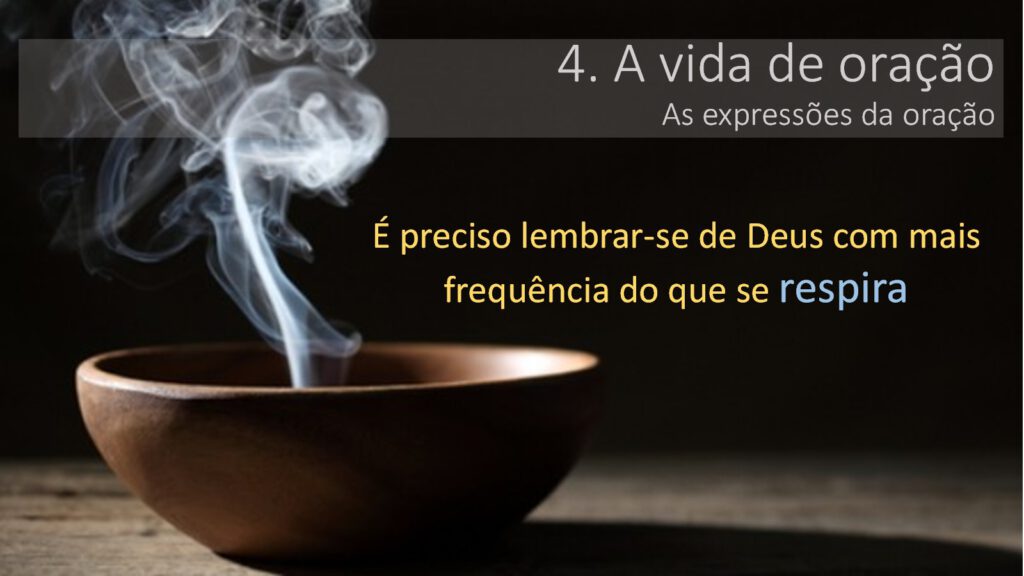
One of the ideas that stands out is the fact that prayer can be seen as a real struggle. Praying requires our effort.
Our ego and the snares of those who seek to lead us away from God are enormous and require great humility and persistence.
This is evident in the prayer life of St. Daniel Comboni, which we meditated on Sunday morning.
In Comboni we find a man of deep prayer, perfectly aware of the fundamental importance of this dimension in the Mission entrusted by God to his Church.
In fact, it was only through prayer that he was able to give meaning to and love the many crosses that arose throughout his missionary life.
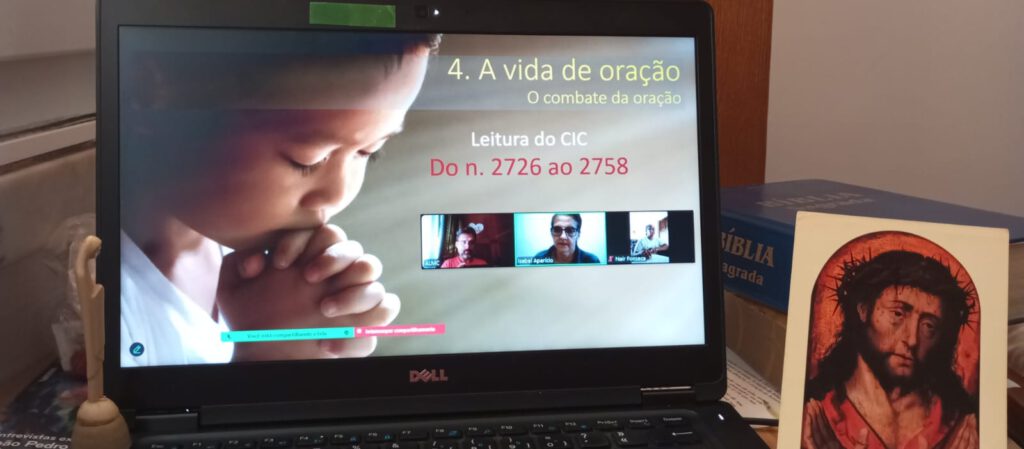
At the end of the meeting, I realized that I have to rethink my prayer life.
As a CLM, I have to pray much more (and better) for vocations and for the means to carry out Jesus’ command that still echoes in our hearts as those who are called: Go into the whole world and proclaim the Good News to every creature. (Mk 16:15)
Pedro Moreira, CLM
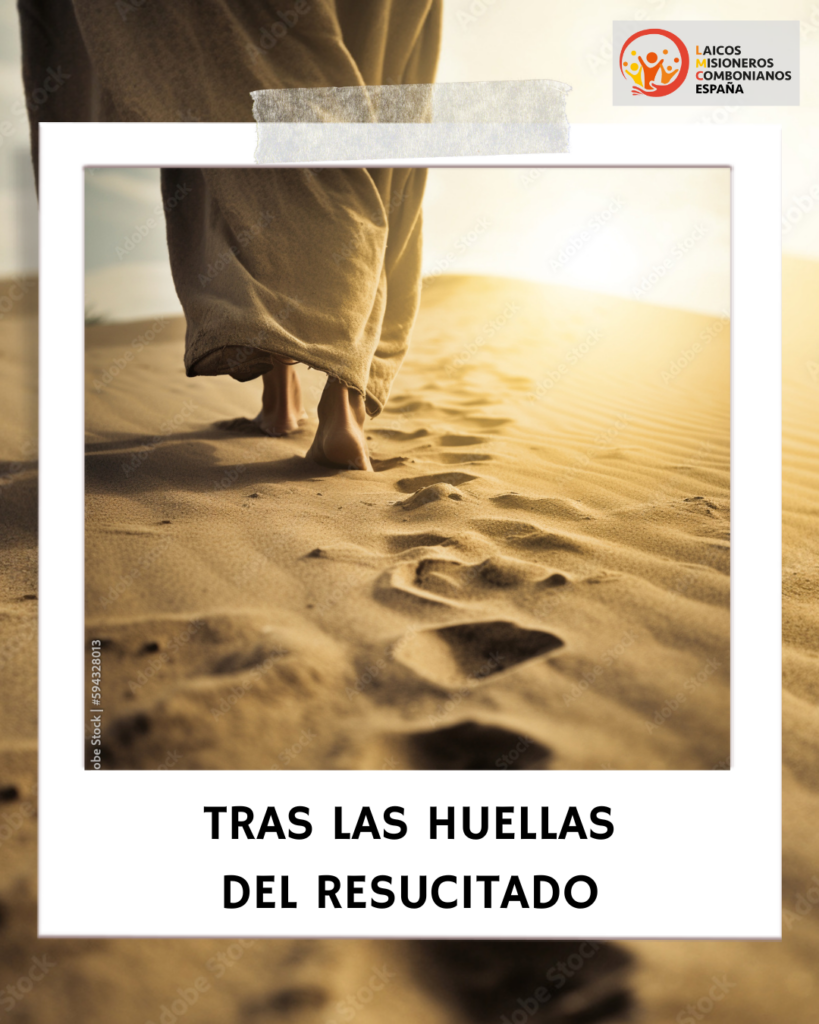
Throughout this Easter season, we have been discovering the presence of the Risen Jesus in our lives. As missionary disciples, we want to follow in his footsteps, to be bearers of the Good News, confident that he always accompanies us in our task of evangelization.
We are going through difficult times in the world. The new political leaders in many countries are taking their rhetoric to extremes for their own benefit. They seem to be striving to accuse others, to divide positions, to create two sides seeking the benefit of one at the expense of the other, and if there is a change, they seek revenge.
Violence, and in extreme cases war, seems to be the only solution proposed to solve our differences. We must prepare for war because we are doomed to find our ultimate solution in it.
We refuse to give up: Another world is possible!
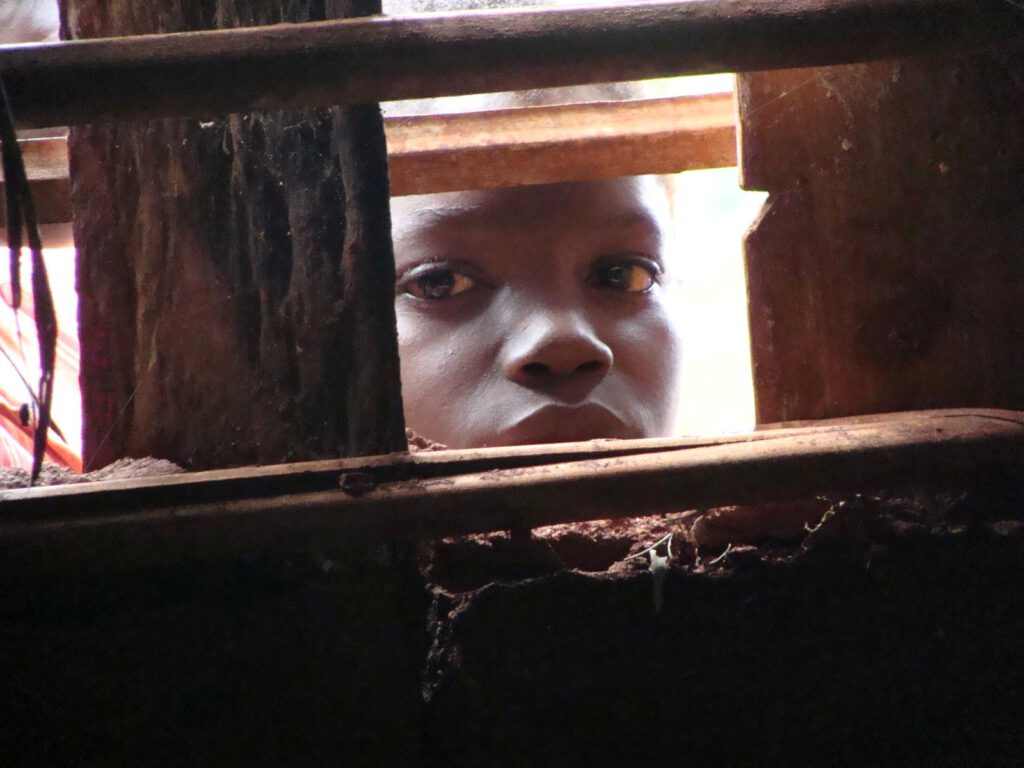
We in the CLM also have our great concerns about how to support our companions who left everything to give their lives to the mission; in particular, the difficulties we encounter in getting new people (young and not so young) to join this missionary service. Finding new people to complete our communities in mission and continue to share our lives with the peoples whom the Lord has called us to serve…
But when we find ourselves surrounded by many difficulties, God appears and reminds us of his covenant with us. As a Church, we live a long Lent asking to be converted and to overcome our weaknesses. And thank God we encounter him in the celebration of the Easter Triduum. During those days, we accompany Jesus at the Last Supper where he teaches us the importance of service. We were with Him on the night of Gethsemane to understand the harshness of those moments, which sometimes remind us of some of our own, and we are grateful for Jesus’ determination to confirm his YES to the Father.
From there, we accompany Jesus in the hardest moments, the consequence of his life. There are many who could not bear his words and deeds; they had to put an end to him. We see Jesus taking up the Cross, the cross that is repeated in so many women, so many men, boys, and girls in our world who continue to suffer injustice, so many harsh realities from which the Lord does not flee, but rather takes a step forward. We understand that God has decided to go all the way with us, that he does not abandon us at any moment.
And with joy and gladness we celebrate Jesus’ resurrection from the dead. Death, evil, does not have the last word. God raises Jesus from the dead and tells us that He is the Way, the Truth, and the Life.
Now we walk a little like the disciples of Emmaus, not quite believing it, not quite recognizing it…
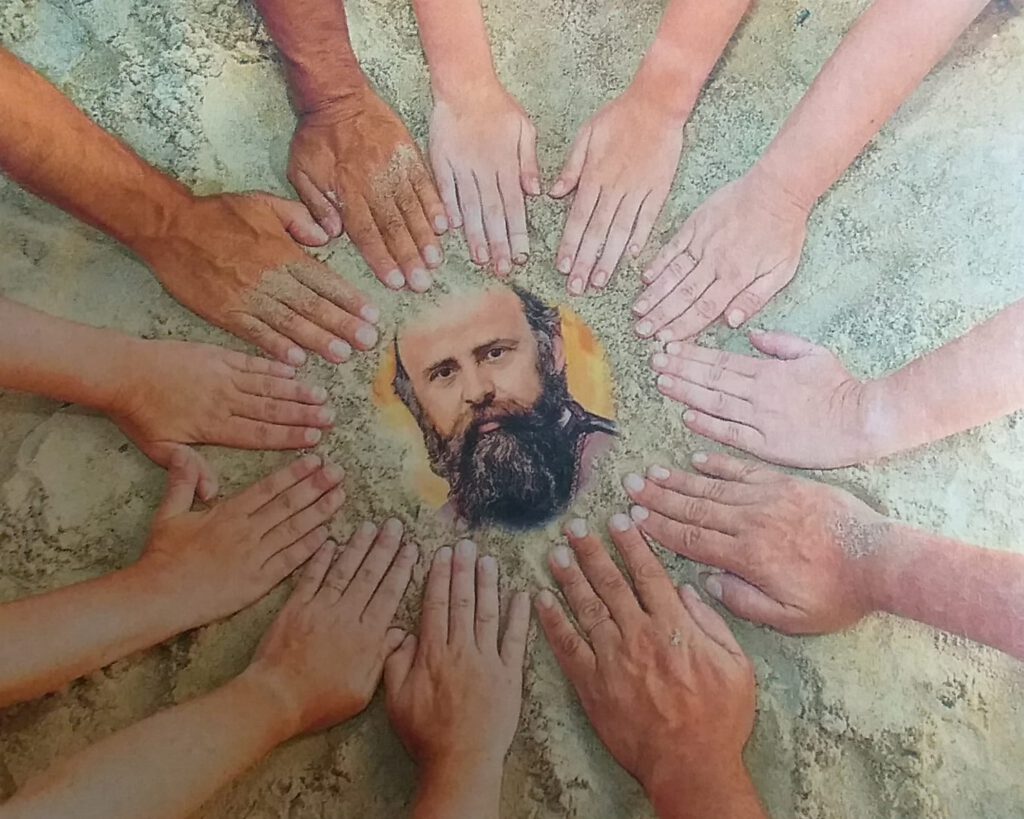
But we see how light prevails over darkness, we see that this is the way forward. Once again we fall at the feet of the Risen Jesus, we ask for forgiveness and we give THANKS.
And suddenly all our difficulties begin to change color. It is not us, it is Him. Each one of us has to do our part, but what we need to do is understand God’s plan and give the answer that Jesus gave with his life.
The answer we can give as human beings is fragile and fears immediately arise, but when we understand in whose hands we are, everything changes.
We know that we are fragile and the enthusiasm of Easter tends to be stifled by day-to-day concerns, but Easter helps us to see life with perspective. And the community helps us to remain faithful.
Individually and as CLM, we recognize once again that the mission is God’s. How naive to think that it depends on our strength. We are only here to serve it. He takes care of it, we just have to trust. Trust with HOPE. With a hope that is nothing more than expectation based on what we have experienced and are celebrating these days. Our Hope is founded on the Resurrection of Jesus. No matter how uphill the road may sometimes be, we know that He accompanies us and is with us.
And we trust fully in the last words of Matthew’s Gospel:
Go, therefore, make disciples of all nations, baptizing them in the name of the Father, and of the Son, and of the Holy Spirit, teaching them to observe all that I have commanded you. And know that I am with you always, until the end of the age.
Mt 28, 19-20

Alberto de la Portilla, CLM
In the second meaning of the word RESUCITAR (to resurrect), the RAE dictionary tells us that colloquially it means “to restore, renew, give new life to something.”
This summer I had a missionary experience in Mozambique with five other companions. During this experience, I met Mrs. M., a widow with a deep faith who had spent her long life working as a teacher. She had a very warm personality and cared deeply about all her neighbors. A few years ago, in her desire to help others, she gathered a group of people, members of the Songo parish, to start the Caritas group from scratch.
Thanks to her efforts and those of her collaborators, Caritas Songo was launched with the fundamental objective of restoring dignity to all those in need in the village.
Every day, she would go out on foot with her group to visit, accompany, distribute, listen… always with a smile on her face and a transparent gaze that showed the merciful Jesus she carried to everyone.
I could talk about many of the experiences I shared with Mrs. M., but the one that impressed me the most was the day we went with the group to respond to an emergency call. An elderly man had been left on the street because he had been kicked out of the house where he lived. He took refuge in an abandoned, dirty, dilapidated room with no door. The neighbors alerted her to the situation, and Mrs. M., without hesitation, came to his aid, taking money out of her own pocket to cover the old man’s basic needs, mainly food and water. She asked the community to mobilize to find a solution to the problem of the missing door, and they quickly managed to bring one that solved the old man’s lack of privacy and security. And just as the Good Samaritan did, she left more money with one of the man’s neighbors so that she could buy more food and whatever else he needed.
Her generosity, selflessness, and humanity, in the style of the Gospel, made us think about our own attitudes and behaviors in the society in which we live. Would we have acted in the same way? Probably not.
Two months ago, I received the news of her death. The same Jesus who was present in her charitable work called her to reward her and thank her for being Good News.
Mrs. M. was determined to restore, renew, and give new life, that is, to RESURRECT, all those who came to her for help. Nor did she forget to go to those who could not or did not want to come to the parish. Those were her chosen ones, the same ones whom Jesus approached because he knew that they would not take the first step.
Now she enjoys the RESURRECTION that she gave to so many people in Songo.
Faina Toledo, CLM

We pray that, following the example of Jesus, the Good Shepherd whose heart is pierced, we may create relationships of mercy and welcome in our daily realities. Lord, hear us.